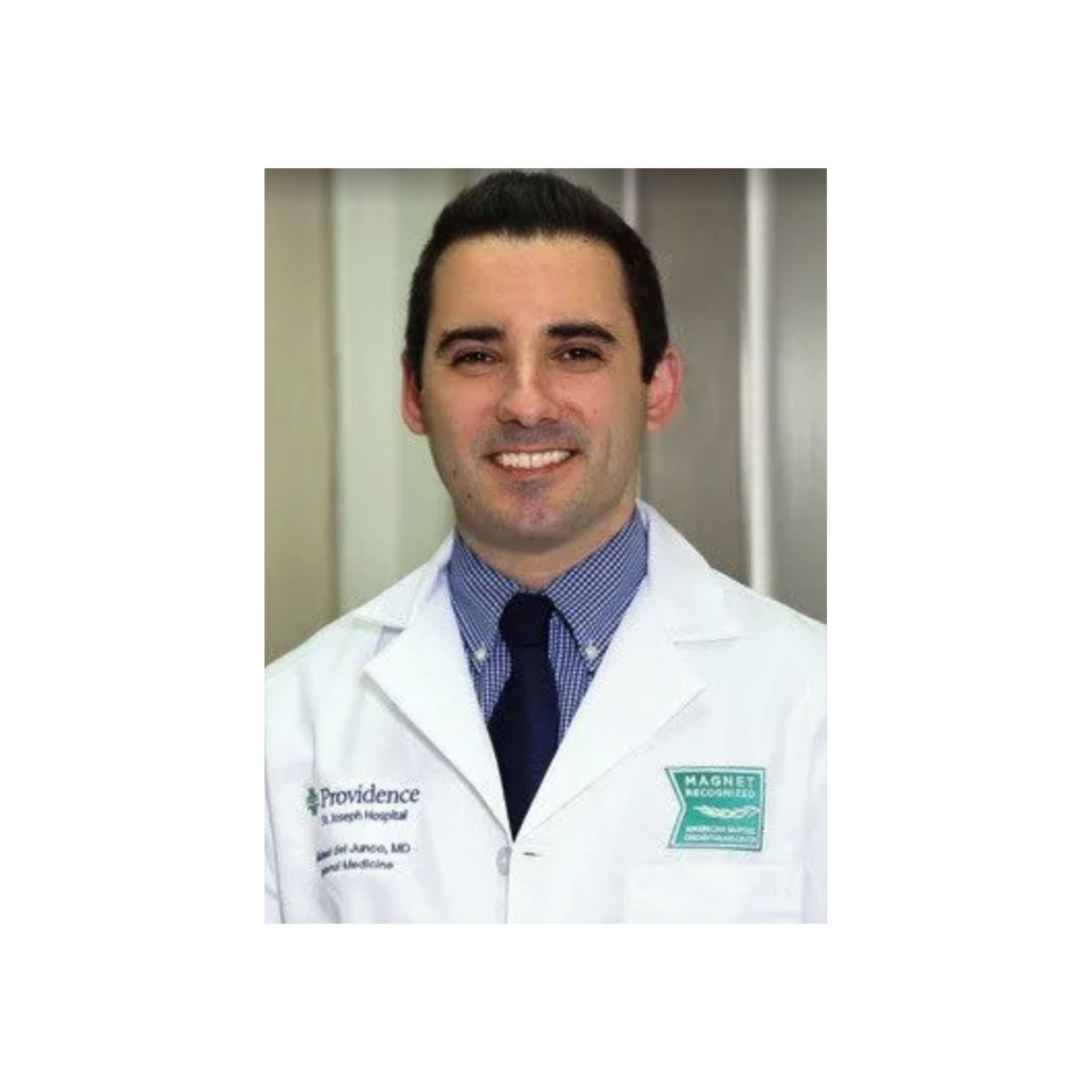
7 minute read
California Doctor Shares Helpful Heart Health Tips
By Emma Peters
Cardiovascular disease claims 850,000 lives in the U.S. each year, and is the leading cause of death and disability worldwide. Nebraska Medicine analyzed studies which found that genetics play a role in a lot of heart health situations. In coronary artery disease (CAD), for example, studies suggest that 50% of one’s risk for developing CAD is set at birth by your genetic makeup, with the other 50% determined by lifestyle. Despite these numbers, there are practical lifestyle changes which can dramatically lower risk for heart disease, for those who are both genetically predisposed and for those who are not. In this article, we will explore ways to maintain heart health backed by the advice of a licensed and board-certified doctor, Dr. Michael Del Junco.
It’s no secret that maintaining a healthy lifestyle can decrease the risk of heart disease, yet many people are unaware of how great of an impact these changes can have on their heart health-to the extent of saving their lives. If you’re looking for simple changes to make towards your heart health journey, the Mayo Clinic suggests these 7 ways to get started:
1. Stop smoking. Cigarette smoke can damage the heart and blood vessels by lowering the oxygen in the blood and raising blood pressure and heart rate.
2. Increase nutrition and a heart healthy diet. Eat more: vegetables/fruits, beans/legumes, lean meats/fish, whole grains, healthy fats. Eat less: salt or high-sodium meals, sugar/ sweetened beverages, highly refined carbohydrates, alcohol, highly processed food, red meat, fast food.
3. Increase physical activity. Try to exercise at least 30-60 minutes per day. Make exercise more enjoyable! Activities such as gardening, housekeeping, taking the stairs and walking the dog could all count toward this total. It’s simply important to be active.
4. Get enough sleep. A lack of sleep can contribute to increased stress and raise your blood pressure. Most adults need at least seven hours of sleep per night. Set a reasonable sleep schedule and try to stick to it.
5. Manage diabetes. Diabetes can cause many health complications and increase the risk of heart attack and cardiovascular disease. If diagnosed with Type 2 diabetes, make sure to monitor blood sugar often through at-home tests or with an HbA1C test. There is other non-invasive and invasive tests that one can take to monitor diabetes and prevent heart disease.
6. Reduce stress. Stress can lead to unhealthy habits, which increases the risk of heart disease. Stress has been linked with high cholesterol, high blood pressure, and even Type 2 diabetes. Find ways to reduce stress through physical activity, relaxation exercises, mindfulness, sleep, yoga, or meditation.
7. Get regular health screening tests. The National Heart, Lung and Blood Institute recommends that women ages 55 to 65 and men ages 45 to 65 get screened on cholesterol levels every 1 to 2 years. People over 65 should get their cholesterol tested once a year. Health screenings such as blood pressure levels, cholesterol, or Type 2 diabetes can allow you to monitor your heart health regularly and take preventative measures more efficiently.
ASK THE DOCTOR
EMMA: Out of the lifestyle changes listed in the previous page to prevent heart disease, what are the top three that you would suggest to patients?
DR DEL JUNCO: All the factors that you mentioned do play a significant role in reducing cardiovascular risk. The top three to focus on to prevent heart disease would be: diet modification, physical activity and tobacco cessation. Adopting a heart healthy diet will significantly reduce the risk of heart disease. This would include limiting saturated fats, trans fats, cholesterol, sodium and increasing dietary intake of fruits, vegetables, whole grains, and lean proteins. Some typical examples are the Mediterranean diet or the dash diet. Regular physical exercise is crucial to maintaining cardiovascular health. Our goal is to aim for 150 minutes of moderate intensity, aerobic exercise or 75 minutes of vigorous intensity exercise per week. It’s best to forgo a heart rate of 220 minus your age, which is 65%. Smoking is a major risk for cardiovascular disease. Tobacco cessation will have immediate and long-term benefits for your cardiovascular health. Tobacco use is so harmful it can be considered equivalent to heart disease.
What about those who are genetically predisposed?
The AHA reported on a study that began in the 1970’s and 1980’s, which analyzed 40,000 children in an effort to understand the long-term effects of factors such as: BMI, systolic blood pressure, smoking and total cholesterol and triglyceride levels during youth. The children from this study have finally aged long enough to conclude these effects. Those with the highest level of childhood risk factors had the highest risk of later cardiovascular events. However, researchers found that even slightly elevated risk scores — at levels that would be considered average for children — were associated with a higher risk for cardiovascular events, compared with those who had the lowest risk factor levels in childhood. Therefore, the conclusion of this study proves that in the long-term, these unhealthy habits can have a greater impact than one would think.
Nebraska Medicine analyzed studies which found that genetics play a role in a lot of heart health situations. In coronary artery disease (CAD), for example, studies suggest that 50% of one’s risk for developing CAD is set at birth by your genetic makeup, with the other 50% determined by lifestyle.
EMMA: What do you recommend to patients who are genetically predisposed to heart disease?
Dr. Del Junco: If a patient is genetically predisposed to heart disease, it is crucial to schedule regular checkups with your provider. You should focus on managing evaluated blood pressure, cholesterol, glucose, and EKG. There are advanced lipid panels currently out on the market.
These will provide a more comprehensive evaluation of cholesterol and imaging scans. These scans can include a coronary artery calcium score to better assist in evaluation of heart disease.
It’s also important to have a comprehensive understanding of the genetic issues you may have. It’s best to have accurate and clear information on your family history so that you are aware of the preventative steps to take next which may be different from the average person.
Heart disease may be daunting and overwhelming to approach, especially if you have a family history associated with this issue. A combination of intentional lifestyle changes, regular health screenings, a full understanding of your family history and clear communication with your primary health care physician can greatly decrease the risk of heart disease. Medications, when necessary, can be helpful to manage heart disease and working with a physician to monitor medications is a must.
Summary
Health insurance professionals need to encourage clients to use their benefits from preventative services to find a good PCP who will help develop a plan that addresses personal issues and known facts about the risks of heart disease. Brokers can encourage and advise clients to take charge of their health and use their benefits to stay involved in their health care.

Emma Peters is a media intern at California Broker Magazine. She recently graduated from Point Loma Nazarene University summa cum laude, with a Bachelor of Arts in Literature and a minor in Humanities.

Michael del Junco, M.D. is a board-certified Internal Medicine physician with an office in Orange County. His medical practice is focused on adults from 18 to over 90. He has an open invitation to new patients looking for a primary care physician. He accepts same day appointments and spends at least 30 minutes every visit with eacg patients. Dr. del Junco can perform many services from annual physical exams to chronic care issue management.
Contact:
Dr. Michael del Junco
714-919-8141










